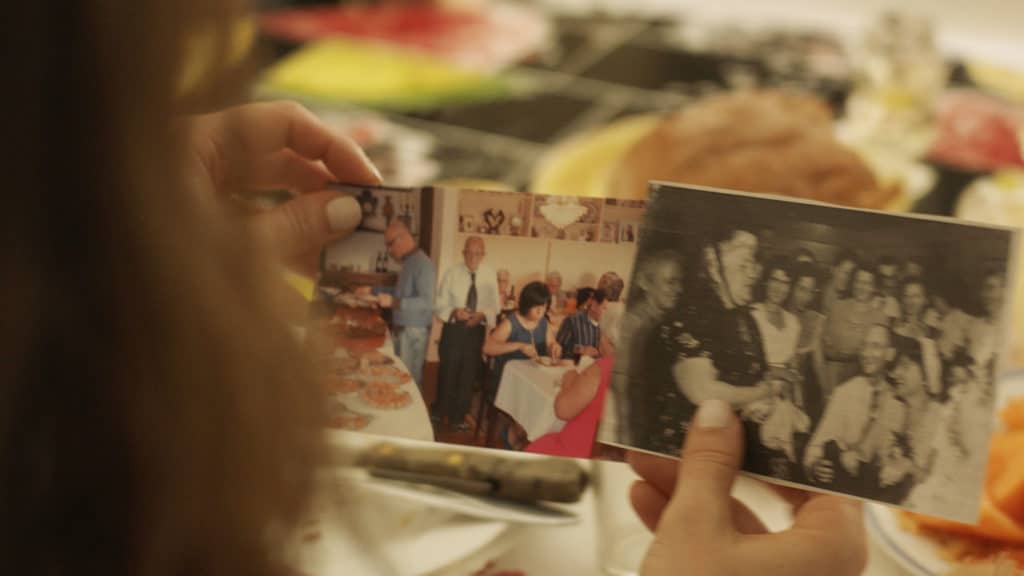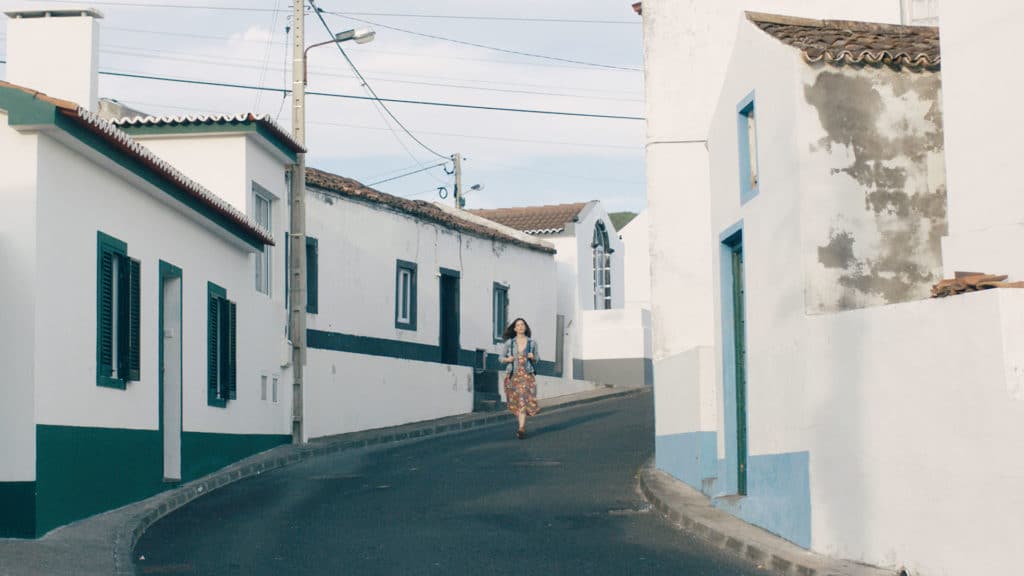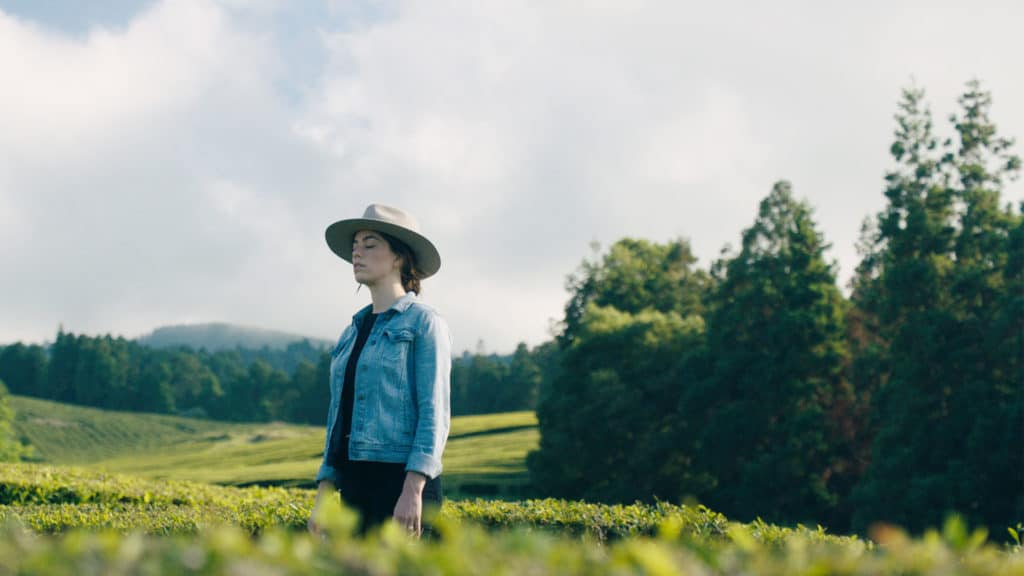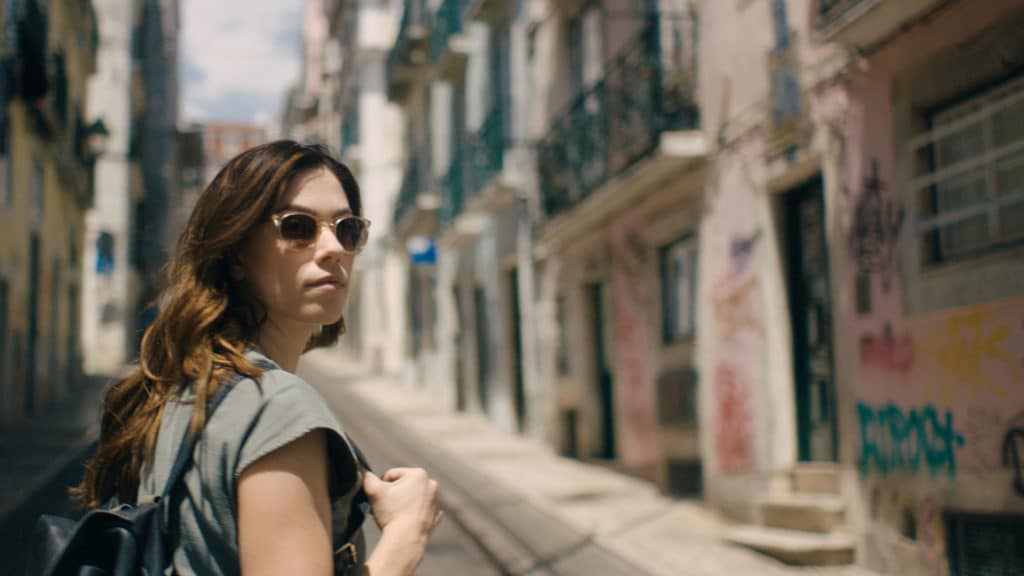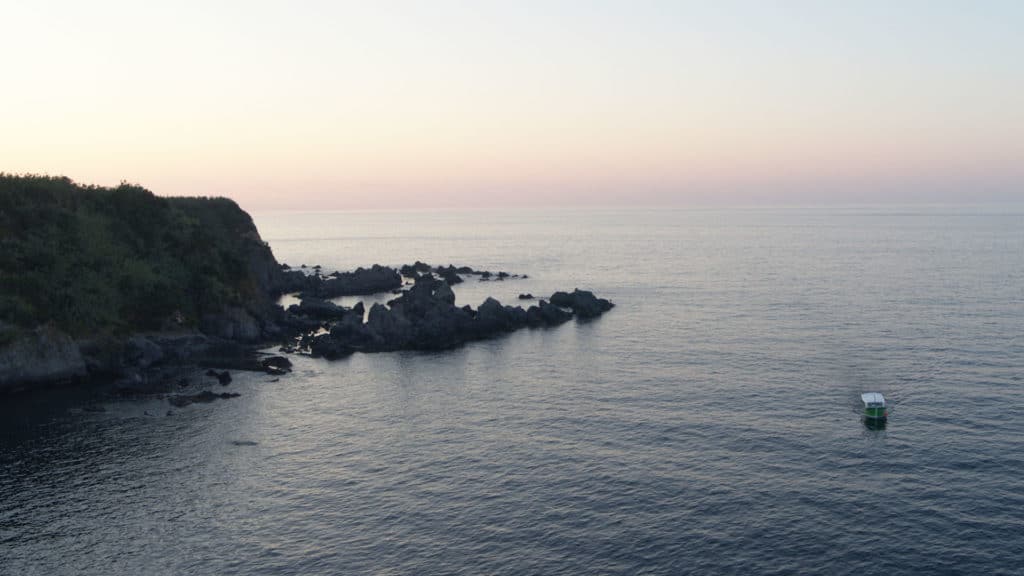When producer and reality star Sarah Yourgrau first set foot on the Azores islands, she felt a rush of emotion unlike anything she had ever experienced. Although technically part of Portugal, these pine-forest-clad specks of volcanic rock in the middle of the Atlantic Ocean are a world apart from the European continent. Untouched by time and mass tourism, the Azores are a place of supernatural beauty and tall tales.
“It’s wild. It’s lush. It’s ‘Alice in Wonderland’-esque. Whatever you’re imagining, it’s that times 11,” Yourgrau says of her trip to Portugal and the islands as part of the Marriott Bonvoy StoryBooked documentary series, where she stayed at The Ritz-Carlton, Penha Longa Resort.

She remembers marveling while walking along cobblestone streets and under stone archways covered in brilliantly hued hydrangeas.
“It feels like a fairytale, but at the same time, deeply grounded and ancestral. I’d felt such a pull there for so long that I’m sure I had my own narrative going into it.”
While the raw natural splendor of the Azores would be enough to take anyone’s breath away, for Yourgrau, the connection ran deeper. Yourgrau is a professional storyteller and a traveler by trade.
As the co-host of “Returning The Favor,” a wildly successful online reality series, Yourgrau spends nearly half of each month traversing the United States alongside television host Mike Rowe.
I try to make it safe for people to step out into their own identity.
Sarah Yourgrau
Every episode, the duo seeks to reward do-gooders who might not otherwise get the widespread recognition they deserve. Each segment culminates with a surprise gift to the community in which the person serves, be it a new school building or backpacks and supplies for hundreds of students, as a way of expressing gratitude.
“We’re saying, ‘You are the true people we want to shine a light on in the world,’” Yourgrau says.
The heroes on “Returning The Favor” come from all different backgrounds and belief systems, and Yourgrau has discovered that a shared understanding of the significance of building community manages to overcome these cultural barriers, time and time again.
“I grew up in an area where there weren’t really a lot of other Jewish people, so I can relate to anyone who ever felt like an outsider,” Yourgrau, who is Jewish, says. “I try to make it safe for people to step out into their own identity. I’m there to listen and to learn. I’m passionate about the stories, ideas and personal narratives that shape all of our lives.”
The lifelong search for her own narrative is what ultimately led Yourgrau to the misty shoreline of the Azores. Like those of many members of the Jewish diaspora, the roots of Yourgrau’s family tree stretch far and wide and have become tangled through oral storytelling.
“Being Jewish, the diaspora is very real. You’re from so many different places … so you don’t have a lot of tangible history,” she says. “Instead, you have this oral history. Story becomes profoundly important because that’s what you get handed down generationally.”
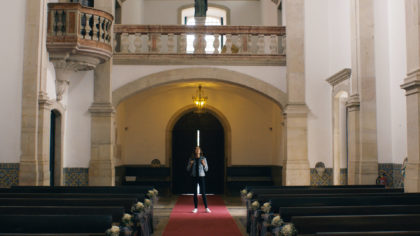
Piecing together the story of where she comes from has become something of a never-ending quest. She knows that her father came from South Africa, that her grandfather fled Berlin during the Holocaust, and that her ancestors have passed through the Netherlands, Romania and Lithuania.
Even after years of searching, however, certain things remain unknowable.
“It can be frustrating not to be able to say, ‘I’m seventh-generation Irish, and I know the town where my family immigrated from,’” she says. “But in a way it elevates these mythical stories. They take on a whole other level of richness.”
Story becomes profoundly important because that’s what you get handed down generationally.
Sarah Yourgrau
Through DNA tests and words passed down through generations, Yourgrau has come to believe that her relatives lived in the Azores centuries ago. In the 1500s, Portugal banished or converted much of its Jewish population. Many families scattered throughout Europe, taking only memories with them. Yet their stories endure, passed from parent to child through centuries and continents. Buildings may have crumbled, but the legacy of those forced to abandon their homes cannot be erased.
“I have always felt this pull towards the Iberian Peninsula and the Azores as this origin point,” Yourgrau says. “There are these stories of all these places our family is from that have led us back to the Azores. They describe the islands and the way you had to be a little bit more in hiding. People would practice these private, simplified versions of Judaism.”
Today, little physical evidence of the Jewish community that once inhabited the islands remains. Save for one synagogue, known as Sahar Hassamain, or “Gates of Heaven,” no other places of worship have survived. Yourgrau’s father had made a pilgrimage to this same synagogue years earlier.
“Entering that warm, blue room, I inhaled the smells of incense, old books and dark wood,” Yourgrau says. When she told thecaretaker of the synagogue, José, of her father, his face lit up with recognition. “The fact that he remembered my dad there years before only reaffirmed that sense of connection. As I sat in the creaky pews, I felt a reverence thinking about the kind of strength it takes for people to maintain their traditions in the shadows.”
I felt a reverence thinking about the kind of strength it takes for people to maintain their traditions in the shadows.
Sarah Yourgrau
Portugal took on an even greater personal significance this year, when Yourgrau officially tied the knot in Tel Aviv. Though her husband is Israeli, his genetic link to the Portuguese Jews exiled under the Inquisition is so direct that he is eligible for Portuguese citizenship.
As Yourgrau wandered through plazas on her StoryBooked journey, she wondered about the shared trauma and joy that their ancestors might have experienced, about all the history embedded within the walls of these places.
Like the modern-day inhabitants of the Azores, Yourgrau’s ancestors would have been seafaring people. The rhythms of life in this otherworldly archipelago are inseparable from the ebb and flow of the tides. As she walked barefoot over a black-sand beach, Yourgrau met a group of fifth-generation fishermen. One proudly told her that he had never spent more than two days away from the ocean in his life.
“More than any other place I’ve visited, Portugal is inextricably linked to the sea,” Yourgrau says. “The warm blue of the mid-summer Atlantic seemed to take on a different color and depth, like it was budding with life.”
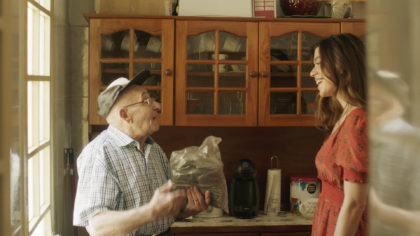
The fishermen weren’t the only locals from the Azores that Yourgrau will never forget. After she left the synagogue, she met an old man staring out at the sea. There was a warmth in his eyes that compelled her to stop and greet him.
“I showed him photos of my family to see if he recognized them, and within moments, he’d invited [me and my husband] in to sit around his kitchen table. He offered us a special family liquor, as well as delicious fruits he had picked the day before,” Yourgrau says. “The whole interaction was so pure and joyfully human.”
As they whiled away the afternoon, the man, Alfonso, explained that his family had lived on the islands for generations. He did not know the story of her ancestors or what might have happened to them, but he welcomed them into his home nonetheless.
“Being in the Azores, I just welled up with one of those feelings that’s hard to fit into words. It was like a homecoming to a place I had never been,” Yourgrau says. “I had this feeling that this is one of the places that our family began, that this was where the first chord was struck. Everything else was a vibration from that.”
Yourgrau is at peace with the fact that she will never unlock all of the secrets contained within her family’s long, nomadic history. The more she unravels these mysteries in her travels, the more unanswered questions she encounters. Much like the Azores, though, that lingering sense of enigma only draws her deeper into the story.
